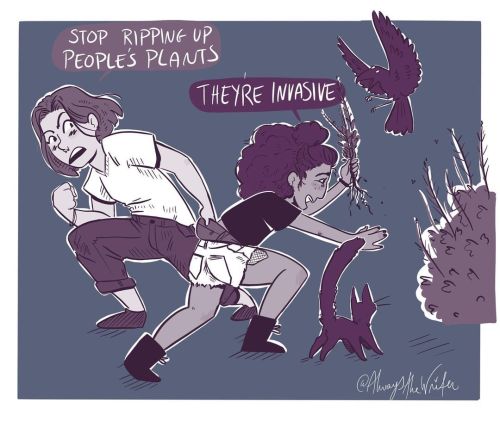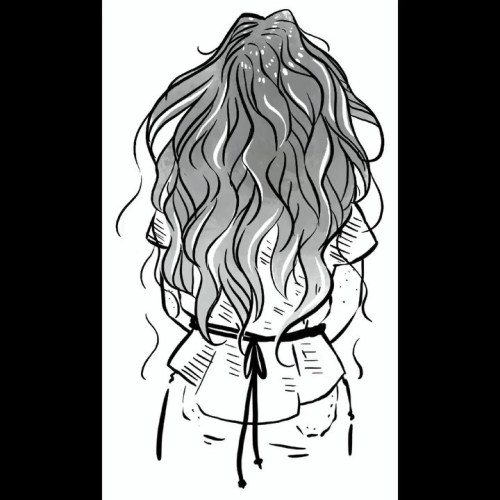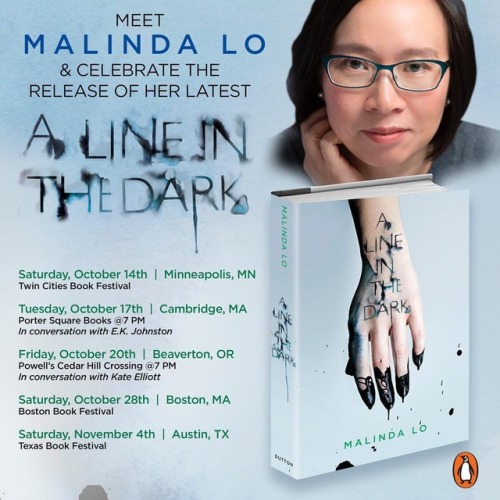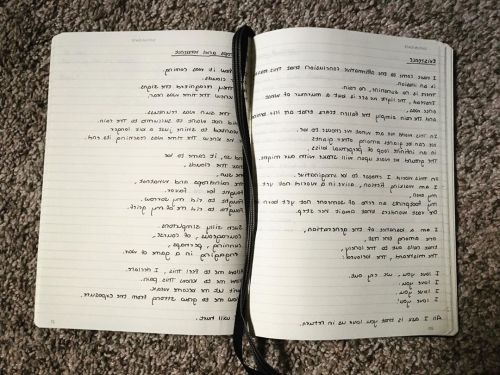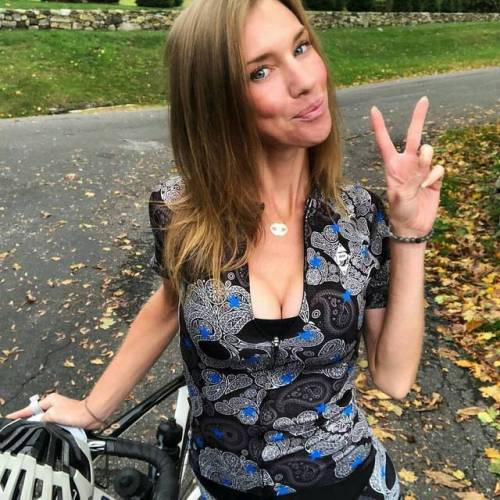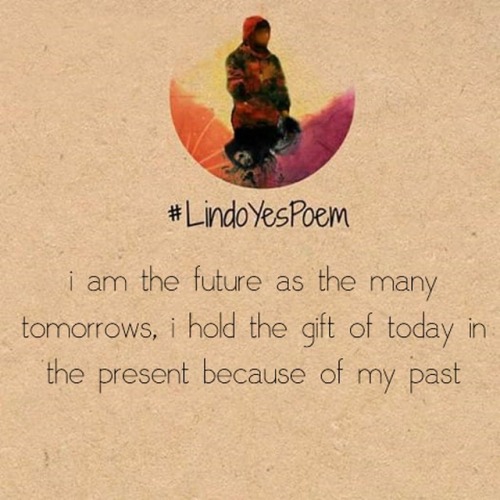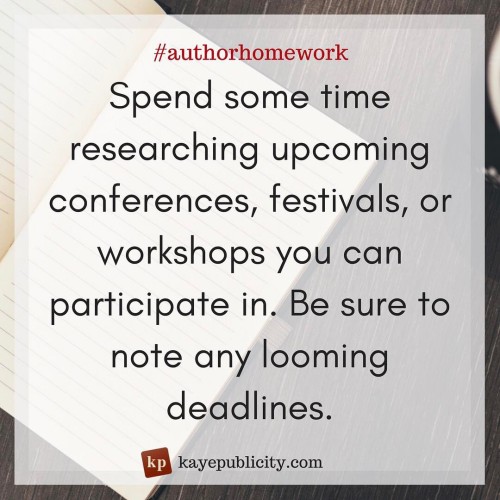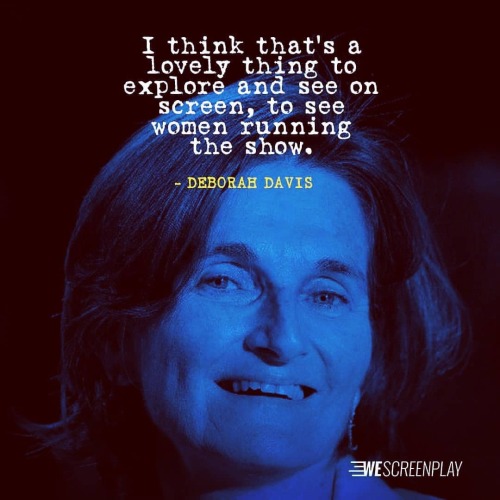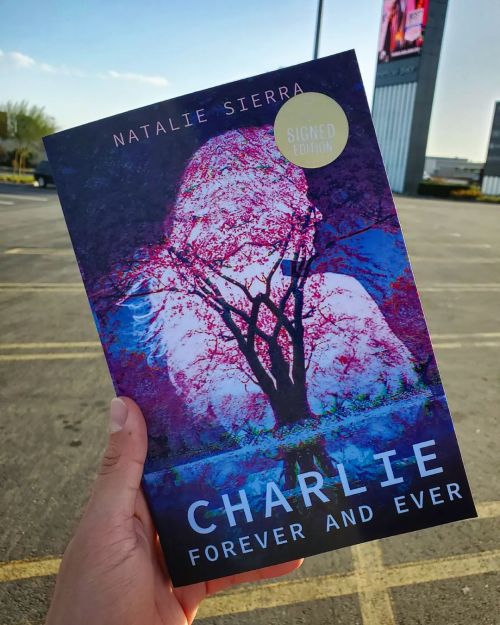#writersofinstagram
Emma and Saje in Purples⭐️
•
I’ve been thinking about these characters since 2015. I’ve tried literally five times to write their story, sometimes just 50 pages, sometimes whole books that I tossed and started from scratch.
✨
I just finished another draft of another manuscript with their names written in it, and it’s my favorite yet. It’s not perfect, but it’s mine. I wouldn’t have gotten there without the five other tries and countless hours of editing and deleting.
✨
What I’m saying is, keep going. If you love it, keep going. Maybe someday you’ll be happy you did
#oc #sweetrock #thewitchesofsweetrock #swru #queerwriters #queerartist #writer #writersofinstagram #artistsofinstagram #witches #forager #bestfriends #fantasy #urbanfantasy #lowfantasy #manuscript #amwriting #amediting #queerwitches #ownvoices #asexual #bisexual #queer #strongfemalecharacters (at Lebanon County, Pennsylvania)
https://www.instagram.com/p/CRJ7_v_nLg-/?utm_medium=tumblr
Post link
Illustration of a character from my book :)
•
•
•
#writersofig #writersofinstagram #witches #witchesofsweetrock #thewitchesofsweetrock #illustration #longhair #waitress #witch #modernwitch #newadultfantasy #fantasy #fantasywriter (at Lebanon County, Pennsylvania)
https://www.instagram.com/p/COEp9hdHqNA/?igshid=3sa8ejx1gp0m
Post link
Our own path, our own time, our unique and very own life.
You know, often people won’t understand you, at some points even your very closed ones.
They can’t, or may be they just don’t try or really want to. Yet again and again, so many efforts, and so many explanations don’t appear necessary to me. Why tired yourself that much in giving justifications. Anyhow you will be misunderstood by the one who are stuck in their perspective of things. Who you are, what you think, what you want to do, where you want to be. And that question, why. Well, what if I ask you your own question, why so ?
Many times we get to be compared to someone else or to the path they followed, not with a bad intention but it is still done when we have taken a different road. But we all have our own path, our own time, our own leads In life. We are all so unique that there’s nothing to compare.
I guess, they can’t understand the why and how, sometimes because you don’t know the answer. It’s just something leading you from the deep inside of yourself. And you can just follow it and make happen what you want, try to at least. I guess you seem to be stupid or selfish, arrogant or just careless, But isn’t it good enough to cherish what you have, and work toward what you chase.
I’m excited to share my fall events for A LINE IN THE DARK! For full event details visit malindalo.com/events. Hope to see some of you in the audience!
.
#alineinthedark #authorsofinstagram #authorlife #writersofinstagram #writerlife #youngadult #lgbtq
Post link
#writing #writingcommunity #writingcommunityofinstagram #writers #writersofinstagram #instawriters #poem #poetry #poet #poetsofinstagram #words #wordsofwisdom #author #authors #authorsofinstagram #instapoets #instaauthors #canva #canvaediting #wearewriters #weareauthors #wearepoets #wearedreamers #prose #prosepoem #prosepoetry #prosepoet
.
.
.
.
.
Image created with Canva
https://www.instagram.com/p/B7bL1VbgU5i/?igshid=xxkhon5dtg3w
Post link
It is said that Da Vinci would write backwards as a means of hiding the secrets to his success…
…though I am not that elaborate, the concept is quite intriguing on this brisk Monday morning.
.
.
.
How do you capture your writing? Via journal? Computer? PostIt notes and index cards stuck all over your wall? Comment if you wish! Perhaps others might provide you with different means of organization…
~ E.R.
.
.
.
.
.
#writingcommunity #writing #poetry #poets #poet #poetsofinstagram #writersofinstagram #journaling #journals #writingjournals #wrote #write #writeforlife #author #authors #authorsofinstagram
https://www.instagram.com/p/B6-w3ItAw4D/?igshid=1fdo2ndxdfbe1
Post link
#calmthetrialsofemberprophet #bookone #firstnovel #book #books #bookstagram #novel #novels #author #authors #authorsunite #authorsofinstagram #writer #write #writersofinstagram #writersunite #supernaturalfiction #fiction #fictionnovel #fictionbook #somethingwickedthiswaycomes #sheismagicheisfire #salem #salemmass #salemwitches #witchesinsalem #magicalrealism #magic #parttwo #pastthehalfwaypoint
.
.
.
.
.
Reaching a pinnacle point in the second half of the novel. Some deep truths are finally being revealed…
https://www.instagram.com/p/B6OVgA0lDMu/?igshid=1o8145a1jn5im
Post link
#writingcommunity #poetry #poem #prose #prosepoetry #prosepoem #poet #poets #poetsofinstagram #poetryinstagram #instapoetry #canva #canvaediting #pexels #pexelsstockimage #stockimage #filtered #writer #writersofinstagram #writersunite #writersofpoetry #writers #poetsandwriters #write #writeforlife #wearestorytellers #praiseprose #praisepoetry #poems #writingoninsta
https://www.instagram.com/p/B6L8Zn0Frm7/?igshid=1wdxxpk582i7d
Post link
#writingcommunity #writer #writing #writersofinstagram #poem #poetry #prose #prosepoetry #poet #poetsofinstagram #author #authors #authorsofinstagram #canva #canvaediting #pexel #pexelstockimage #pixaloop #books #bookstagram #findingpoetry #findingpoets #poetsunite #writersunite #authorsunite #findwhatyouloveandletitkillyou #bukowski #bukowskifans #poetryfans #literary
.
.
.
.
.
Video/Image created with Canva and Pixaloop, picture courtesy of Pexels.
https://www.instagram.com/p/B53aJYAFWjn/?igshid=23slc9fw2iiq
#writing #writingcommunity #write #writer #writersofinstagram #author #authorsofinstagram #poem #poems #prose #prosepoem #prosepoetry #poet #poetsofinstagram #story #storyteller #stories #words #wordsofwisdom #mywords #mystory #canva #canvaediting #pexels #pexelstockimage #stockimage #pexelstock #sepia #sepiaphotography #writersunite
.
.
.
.
Image created with Canva, picture courtesy of Pexels.
https://www.instagram.com/p/B5WMLhfFPSl/?igshid=r5i0upsmdv0m
Post link
@Regranned from @purely_palmer - UPDATE: ALSO SEE STORY #throwbackthursday
This is @purely_palmer’s mom. First and foremost, thank you. She treasures the time she has spent getting to know you… so grateful for the love you have shown during this challenging time. Many hours of surgery and a long road of recovery ahead, but we all know she will ride through this with optimism… regardless of the distance. Due to her injuries reading and typing are a struggle for her right now so she’s unable to answer comments as she would like. Thank you for helping to keep a smile on her face. #recovery #bike #bikelife #cycle #fitnessmotivation #plantbased #peace #legday #surgery #hospital #reading #cycling #cycling #support #grateful #family #fitfam #yoga #meditation #medical #fitnesslifestyle #swimbikerun #triatlon #triathlete #quotes #writersofinstagram #tattoos
Post link

Moving mountains is hard, but not impossible.

What do you do when your life is falling apart? Make quote graphics!
I am future, as the many tomorrows, I hold the gift of today in the present because of the past
#poetry #spokenword
.
.
.
.
#phillyunknown #mood #poets #poem #thoughts #poet #writers #poems #lyrics #quote #poetic #writing #poetrycommunity #philly #art #quotes #words #phillysupportphilly #feelings #blackwriters #poetryporn #writersofinstagram #blackness #melanin #art #poetsofig #philadelphia #culture #nationalpoetrymonth
Post link
I am future, as the many tomorrows, I hold the gift of today in the present because of the past
#poetry #spokenword
.
.
.
.
#phillyunknown #mood #poets #poem #thoughts #poet #writers #poems #lyrics #quote #poetic #writing #poetrycommunity #philly #art #quotes #words #phillysupportphilly #feelings #blackwriters #poetryporn #writersofinstagram #blackness #melanin #art #poetsofig #philadelphia #culture #nationalpoetrymonth
Post link
Any festivals, conferences, workshops, or events you’d like to attend this year? Your #authorhomework is to put together a plan.
.
#authorsofinstagram #authorsofig #writersofinstagram #amwriting #authorlife #bookmarketing
Post link
Dramatic Irony
in today’s post I’m going to be outlining what dramatic irony is, some examples of it being used, what it achieves, and how you can use it in your story! // @writingzawn on instagram
source:http://www.publishingcrawl.com/2014/01/24/five-ways-to-use-dramatic-irony-in-your-writing/
What is it?
Dramatic irony refers to when words or actions possess a significance that the reader or audience understands, but the character does not. Essentially, you give the reader some information that the characters don’t have. This means the characters get into misunderstandings whilst the readers have to watch and wait for the truth to be revealed to the characters.
What are some examples of it?
Dramatic irony is used in a wide range of storytelling. In Romeo and Juliet, the audience knows that Juliet is simply sleeping whereas Romeo believes she’s dead. In Toy Story, Buzz thinks he’s a real space ranger but the audience knows he’s a toy. There are lots of examples in superhero movies of the audience knowing the protagonist’s secret hero identity whilst the majority of the characters don’t.
How can you use it successfully?
1. Let your unknowing character make mistakes they wouldn’t make if they had all the information.
This ramps up the tension because the reader will feel entirely helpless, knowing the full extent of the mistake the character is making. Think of the ending of Romeo and Juliet.
2. Reveal a character’s true feelings by allowing them to speak their mind to someone they don’t recognize.
This is a very specific example but it crops up often in storytelling. Comedy involving mistaken identity can be a useful tool. Perhaps character A confesses their love for character B to someone, unaware that it’s actually character B in disguise. Or maybe the hero reveals an important part of their plan to someone they don’t realise is the villain in a disguise.
3. Use the dramatic irony to create empathy for the character
If you place the character in a situation that they don’t fully understand, it can show their vulnerability and create sympathy in the readers. For example, in Toy Story Buzz’s naïve idea that he’s really a space ranger endears us to him.
4. Use comedy
Dramatic irony creates frequent opportunities for humour as well as drama. Depending on the genre and tone of your story, adding humour could be beneficial.
5. Make the reader keep turning the pages to see the outcome when the character finds out the truth
Use tension. If you promise that there’s going to be a big event when the truth comes out, this has to happen.
What should you avoid doing?
1. Don’t cause your readers to become irritated by your character
If the hero keeps remaining blind to the truth no matter how obvious it is, the readers will become annoyed by them. Avoid this.
2. Don’t have your character act against logic
You know when characters in horror movies run towardsthe danger and you can’t help but laugh? Adding humour unintentionally by the characters doing something unbelievably stupid will disrupt the tension. Also, if your characters keep acting illogically the readers will become irritated.
In Medias Res
in this post I’m going to be outlining what it means to be begin a story in medias res, what it achieves and some tips for going about it! // @writingzawn on instagram
sources:
- https://blog.reedsy.com/in-medias-res/
- https://www.masterclass.com/articles/tips-and-examples-of-in-medias-res-in-writing
What does it mean?
In medias res is a latin phrase that literally translates to ‘in the midst of things’. In terms of storytelling, it means skipping past the things that would normally begin a narrative - eg character descriptions, backstory, world-building - and jumping right to the action to begin the narrative towards the middle of its arc. Most writers would advise beginning short stories in medias res because you usually don’t have the time to do otherwise, but it can also be a useful technique in longer fiction.
What does it achieve?
It doesn’t necessarily involve beginning in the middle of a car chase sequence with explosions going off: it could be a far more mundane scene, as all that matters is whether you’re skipping exposition or not. All it means is skipping long descriptions and info dumps and beginning with something happening. It means jumping right to the point beforegiving detailed descriptions of the characters or the setting, and showing rather than telling required information through snatches of dialogue or brief references.
So why begin this way?
It grabs the reader’s attention
By not giving away all the information readers expect to get at the beginning of a story, you’ll grab their attention and ensure they want to keep reading. For example, the Iliadbegins once the Trojan War has already started, skipping past the history and the outbreak of the war. This establishes a central question or mystery, and the prospect of finding out the answer to this will encourage readers to continue reading. They’ll keep reading in order to get the information you denied them at the beginning.
It creates tension
The readers are left wondering how they got there and how it will end, which will propel them forwards. Dramatic irony could also be used, in which readers know slightly more than the characters, as this creates drama by forcing the reader to watch the characters fumbling in the dark. This method is tricky though, as you have to balance the fine line between giving the plot away entirely and showing just enough that the readers are one step ahead of the characters.
So how do you use in medias res in your story?
Choose a climactic moment
Begin with the middle. Pick an argument, a fight, a revelation - anything that hints at a chain of events leading up to this pivotal moment - and throw the reader into that scene. Perhaps you begin with a dramatic car chase sequence, with your characters facing off some enemy, or with an argument.
Inject backstory
Just because you’re not beginning with exposition doesn’t mean the readers should have no idea where they are or who the characters are for long. Deliver relevant information via short flashbacks, dialogue or changes in POV. You’ll have to find a balance where you provide the readers with just enough info that they don’t get so confused the momentum is lost, but not so much that you dump a ton of lore on them.
Create a sense of urgency
The scene you choose to open with should be a crucial, high-stakes moment for the character and integral to the plot. The readers should be on the edge of their seats wondering how and why this event transpired, and whether it’s going to work out okay for the characters.
Differences Between Genre Fiction and Literary Fiction
following my post on tips for writing literary fiction, here’s a quick outline of the differences between genre fiction and literary fiction // @writingzawn on instagram
sources:
- https://www.novel-writing-help.com/literary-fiction.html
- https://www.masterclass.com/articles/literary-fiction-definition-and-characteristics
Most literary critics divide fiction into two categories: genre fiction and literary fiction. Literary fiction is sometimes called ‘serious’ fiction and is seen by some people as more 'high-brow’ and superior to commercial fiction. But this isn’t the case. It’s simply different, with a different purpose and a different role within literature as a whole. Both are worth reading and writing, and are valid forms of art and expression. Also, many books bridge the gap and could be seen to fall into both categories - The Song of Achilles is often considered an example of this kind.
1. Content
a) Characteristics
Genre novels tend to adhere to commonly used formulas for plot and character arcs; make use of the literal with fewer hidden meanings/symbols/allegories and - if there is symbolism - it’s typically easily understood; make use of tropes and clichés; and tend to fit specific genres such as horror, thriller or fantasy. In contrast, literary fiction tends to be character-focused; follow non-conventional plot structures; contain embedded symbolism/allegory; have more of an emphasis on the exploration of larger philosophical themes regarding the human condition; and have a more poetic writing style.
b) Emphasis
Essentially, it’s a difference of emphasis: where genre fiction novels focus on the thrill of the plot, literary fiction novels emphasise the internal lives of the characters and transcend the plotline to explore more abstract ideas. Literary fans enjoy those 'slower bits’ in between scenes when what makes the characters tick can be explored. I think the difference can be summed up as this: genre fiction is generally read for escapism, fun, tension, to experience life from someone else’s perspective, whereas literary fiction is read with the aims of learning something from the book about the human condition and the world at large.
c) Audience
Literary novels generally sell in fewer quantities than genre or mainstream novels - so publishers are less likely to take a gamble on them.
2. They look different
a) Covers
Once published, the differences continue. Genre novels tend to have more eye-catching covers - castles, dragons and princesses on the fantasy books, dripping blood on the horror novels - whereas the covers of literary novels tend to be subtler, more 'arty’. They sometimes have stickers on the cover saying that the book was short-listed for the Booker Prize or something similar.
b) Formats
They also come in different formats. Genre fiction usually comes in the mass-market paperback format (you need to be well-known to get published in the hardback first). Literary fiction typically appears in the hardback first or as a 'trade paperback’ which is the same size as a hardcover book but with a soft cover (and then in standard paperback one year later). Of course, this isn’t always the case and indie authors are free to choose whichever format they prefer.
c) Titles
Commercial fiction novels often have more direct titles that encapsulate what the novel is concretely about. For example, The Hunger Games is about exactly as it says: The Hunger Games. In contrast, literary novels are usually more 'offbeat’, less clear in what they’re about, and often used to subtly clarify the central idea the book goes on to explore eg White Teeth by Zadie Smith or Instances of the Number 3 by Salley Vickers.
d) Where they’re found
Genre fiction novels each have an area of shelfing inside bookstores all to itself (one area for sci-fi, one area for thrillers). On the other hand, literary fiction appears in the 'General A-Z’ section, alongside more mainstream books.
Conclusion
Literary fiction and genre fiction are the two categories books are divided into by academics, publishers and critics. Literary fiction is studied in universities and receives careful criticism in journals, whereas genre fiction is more 'mainstream’ and sells in greater numbers. Both are valid and worthwhile - the main difference lies in the areas they emphasise. Literary novels are usually slower-paced, with deeper meanings, and a focus on the characters and how the plot affects them internally, whereas commercial fiction contains fewer symbols/allegories, is more direct, and has a greater focus on drama created by plot. Genre fiction still contains themes, but these are generally added to a plot sculpted for drama, whereas the plot of literary fiction is usually created mainly to communicate the central idea.
Tips for Writing Literary Fiction
this post explores what literary fiction is, some of its characteristics, and some tips for writing it! // @writingzawn on instagram
sources:
- https://www.masterclass.com/articles/literary-fiction-definition-and-characteristics
- https://writingtipsoasis.com/how-to-write-literary-fiction/
- https://writingtipsoasis.com/a-beginners-guide-to-writing-literary-fiction/
What is literary fiction?
Literary fiction ‘tends to follow non-conventional plot structures while containing embedded symbolism and allegory’. These are the books that are studied in English departments at universities and are nominated for the Booker prize. It’s important to note that a book can be both a part of another genre and considered literary fiction. For example, Snow Falling on Cedars is both a thriller and a literary novel.
Some Examples of Literary Fiction
- The Great Gatsby by F. Scott Fitzgerald
- On Beauty by Zadie Smith
- The Handmaid’s Tale by Margaret Atwood
- To Kill a Mockingbird by Harper Lee
- Half of a Yellow Sun by Chimamanda Ngozi Adichie
- Life of Pi by Yann Martel
- East of Eden by John Steinbeck
Characteristics of Literary Fiction
- Character-driven stories
- Lack of adherence to a fixed plot formula
- Exploration of larger philosophical themes, especially in relation to the human condition and the will of nature
- Ambiguous plot points, including the ending
- Ample symbolism, metaphor and allegory
- Ambitious vocabulary infused with imagery
Now onto the tips…
It still requires plot
A common mistake writers make when trying to write literary fiction is to write a story with no plot. But literary fiction requires a plot just as much as a genre novel. The only difference is that the plot in literary fiction should be more subtle and character-based, with fewer archetypes and clichés. It can move at a slower pace, dwelling in the mind of the protagonist and their emotions. In this case the events of the plot itself are internal, but caused by parallel external events. The climax might be an emotional peak (be that desperation, sadness, fury etc), rather than an actual event.
The characters must be deep
Genre fiction stories focus far more on the thrill of action, whereas literary fiction draws much of its strength from deep characterisation. The protagonist and the other characters (even side characters) must be realistic, deep and complex. In literary fiction, there is no concept of 'good’ or 'bad’, just as in real life. Most characters would be considered morally grey, with all the complexity of people in real life. Give them quirks and liveliness.
The exploration of themes and ideas is most important
The aim of a literary fiction novel is for readers to finish it having learnt something new about the human condition and what it means to be human. The plot should revolve around a specific idea or theme, exploring it deeply from many angles. Show how it affects the protagonist, the other characters, and the world at large. Be subtle, allow room for readers to search for your true meaning and to reach their own conclusions, and carve a plot that serves best to help readers reflect on this theme.
Don’t preach
Allow your readers to decide things for themselves. A literary fiction book shouldn’t read like a textbook or a parable: trust in your readers to discover their own answer to the questions you pose throughout the story. Even if you know what youranswer is (and hint at this in the book) still allow your readers to search for this for themselves, and don’t overload them with your own opinion.
To avoid preaching, ensure each of your characters speaks differently, has their own outlook and that their opinion fits with who they are as a person. Your characters shouldn’t just spout your opinion: present lots of different angles on the central theme and have it fit with the characters and their backstories. With that said, don’t be afraid to present your final opinion through subtle hinting.
Use elegant language
Whilst still avoiding purple prose, aim for an elegant writing style. Make use of both long and short sentences and ensure your description is vivid and evocative. Your characters should speak in a way that’s engaging, yet deep and profound. If you’re marketing your book as literary fiction, you must deliver with a masterful, skilful use of language, adapting it to the tone and mood required in each scene. You may also notice that the average sentence tends to be longer in literary novels but - with that said - don’t give in to excessiveness. The aim isn’t to show how many long words you can use and how high-brow you can seem. It’s to create an impression of meaning, without losing the air of subtlety. Don’t sacrifice clarity for lyricism.
Know common literary novel structures
We’ve established that these books still need a plot, albeit a character-based one. You have a freedom to choose your own structure: the character-based plot and the slow pacing allows you to construct it any way you like. Perhaps you 'construct your novel in a rose pattern, where each part of your novel unfolds a new revelation for the characters and for the readers, breaking all other structures’. In addition to this, there are two common types of structure used in literary fiction: the coming of age and the picaresque.
In coming of age, we follow the protagonist through their life, from childhood to adulthood, watching as they engage with philosophical ideas. Some examples of this type would be The Catcher in the Rye orPurple Hibiscus.
A picaresque novel, however, features one protagonist while all the other characters appear in an episodic fashion. The mosaic-like novel is usual comical and satirical, featuring characters of a lower standing.
Read literary fiction books
To discover your own style and voice in this genre, the best thing you can do is read literary fiction - not just classics in the genre, but newer literary novels, too. Analyse which writers’ styles you like: do you like when they write with dry humour, when it’s clear and serious, when it’s more lyrical and poetic? Then experiment with your own style!
Aim for transcendency
Your story should be bigger than the plot, about ideas rather than action. Take your time to explore your characters’ motivations and relationships: literary novels are slower-paced, so you have time to do that.
7 Different Types of Short Story
following one of my previous posts on tips for writing short stories, here are some different types of short story! This is in no way a complete list: there are many forms a short story can take, and these are just a few // @writingzawn on instagram
1. Anecdote
These are brief accounts of an interesting and often funny event, with the purpose of supporting a core moral lesson.
2. Drabble
These short stories are about 100 words long, with the purpose of testing an author’s skill in getting a point across in so few words. It challenges you to be concise and precise.
3. Feghoot
A quick funny story ending in a pun.
4. Fables and parables
Both these types of short stories communicate a moral lesson. However, fables always feature anthropomorphic creatures, usually animals, to get the point across, whereas parables do not. Aesop’s Fables are a good example.
5. Flash fiction or micro-fiction
These stories are shorter than 1,000 words. A famous example would be this story by Ernest Hemingway: ‘For sale: baby’s shoes, never worn’.
6. Sketch
This refers to a piece of writing without a plot. The function of a sketch is to illuminate a certain character, setting, or location.
7. Vignette
These are short scenes that often form part of a larger body of writing. They’re used to capture a single moment or detail of a story, such as a character, idea or object.
Let’s Talk About Plot Points
here are seven plot points you should know about and explanations of what plot points are and why they’re useful // @writingzawn on instagram
source:https://blog.reedsy.com/plot-point/
What is a plot point?
A plot point is ‘an incident that directly impacts what happens next in a story’. Essentially it’s an event that moves the story forwards in a fresh direction, preventing it from simply drifting. There’s a difference between a point in the plot and a plot point: a point in the plot can be a significant event but if it doesn’t move the story forwards it’s not technically a plot point. A plot point must:
1. Move the story in a different direction
2. Affect character development
3. Close a door behind a character and force them forwards
What’s the difference between a plot point and plot?
The plot is a chain of connected events that add together to make the narrative: it’s a continuous storyline comprised of multiple events. Plot points are the big, exciting moments that move the story in new directions and keep it building: when you think back on a story, these are likely the moments you’ll remember the best.
Why are they important?
Plot points make the story feel purposeful and identifying them helps you to see how stories work. At heart, stories are not complicated. The good ones are a series of: this happened, so this happened, but then this happened, therefore this happened. The bad ones are simply: this happened and then this happened and then this happened with nothing organically joining the events together.
What’s the seven-point story structure?
This is a common story structure comprised of seven plot points. I’m going to be explaining the plot points that make it up below.
Hook
If you want to keep the reader reading, the beginning of your story must push the story into motion and illustrate how your story is different from all the others out there. The Hook is a premise that hooks your reader’s interest long enough to keep them reading until the first important reveal.
First Plot Point
The Hook sets the stage for this point. The First Plot Point, often referred to as the Inciting Incident or the Catalyst, is the first big event. It forces the protagonist into conflict, throwing them out of their status quo and setting the story out in a fresh direction. This usually occurs around the ¼ to 1/3 mark in the story and signals the end of the beginning.
First Pinch Point
The middle of the story consists of the protagonist reacting to the consequences of the Big Event. These are Pinch Points that put the character under pressure and force them towards making a choice. Initially the character chooses not to act and moves forwards more passively than they will do later on in the story.
Midpoint
This is a crucial turning point in the story, near the middle of the story, that forces the protagonist to 'stop reacting and start acting’. Perhaps it’s an event that makes them aware of the fact that they must take matters into their own hands.
Final Pinch Point
For the second half of the middle of the story the protagonist becomes more active. They experiment with agency and take different approaches to overcoming the conflict. The Final Pinch Point illustrates the (often still small) ways the protagonist deals with the conflict. Here they are learning to have agency and act for themselves. In a dystopian story where the primary conflict is an oppressive government, this might comprise of the protagonist experimenting with small acts of rebellion.
Final Plot Point
Going into the beginning of the end, there’s a Final Plot Point. Here we see the character at their lowest, having taken a major misstep after their newfound agency. This drives them directly into the Climax and the Resolution. Perhaps they are forced to make a major decision after something terrible goes wrong.
Resolution
Stories usually finish on a Climax, a Realisation and a Resolution. These are a series of events that bring the character full circle, often revolving around a choice the character is presented with. Their decision should illustrate in what way the character has changed since the beginning, or that they haven’t. This point should bring the story to a satisfying conclusion - it doesn’t need to be a happy ending, but it should feel organic. Looking back, readers should feel that everything that came before led inevitably and organically to one place.
To conclude: each plot point should move seamlessly into the next and create an ending that feels like a surprise but also, when looking back, the only possible outcome.
Tips for Writing Short Stories
‘Short stories are tiny windows into other worlds and other minds and other dreams. They’re journeys you can make to the far side of the universe and still be back in time for dinner.’ - Neil Gaiman
@writingzawn on instagram
Why write a short story?
Short stories are often more focussed than longer works of fiction, and so all the elements within them must work together towards the common goal. Often they’re more powerful because of this, as everything is focussed on the main theme or mood, making them an excellent form to communicate a single idea quickly.
How long is a short story?
Most short stories are between 1,000 and 5,000 words long. Flash fiction is shorter, often as little as five words long.
Find a simple idea
You don’t have time in a short story for overly ambitious plotlines or back stories. The most successful short stories often use the mundane to craft a story that reveals something powerful/terrifying/magical/humorous in the everyday. Focus on a single character, event or setting and keep your scope narrow.
Have a clearly defined mood or feeling
Your point should be cohesive, so ensure you know the mood, idea or emotion you wish to communicate (or combination of these) and reflect it throughout your writing.
Eavesdrop and steal
Note down things you hear or see in your everyday life that spark your imagination, and come back to them later. Short stories often begin with a single image or funny character.
Know what you want to say
What do you want people to feel and think whilst reading your short story? Why are you writing it? What is the primary idea you’re communicating? Ensure everything works towards communicating this theme. I always think a short story has less of a responsibility to entertain in the same way a book does, and more of a duty to enrapture.
Present the small as significant
You have the ability to surround everything you write about with a feeling of importance. Use clear, descriptive language and focus in on the unusual details to present the small - which is probably all you’ll have time for - as just as significant as the mighty. Even the smallest, most mundane subject can be depicted as important.
Don’t be afraid to experiment with structure and form
Short stories don’t have time to take on the shape of a classic narrative. This means you can play around with chronology and point of view, making it a great opportunity for experimentation. Take risks; try something new. If you’re not asking for much of your readers’ time, they’re more likely to go along with an unusual storytelling style.
Consider starting your story in medias res
You don’t have a lot of time for exposition, so it’s a good idea to begin in the middle of the action and fill in details later. This takes you straight to your important scene.
Everything must be vital
Read every sentence and ask yourself whether it really needs to be there. Does it serve the higher purpose of fulfilling your story’s mood/theme? As Edgar Allen Poe once said 'a short story must have a single mood and every sentence must work towards it.’
Backstory is rarely needed
Your characters should be like icebergs: you show enough of the surface for people to infer what’s going on beneath for themselves, without spoon-feeding your readers every single detail. Let them reach their own conclusions. Ambiguity is a great tool in short stories.
Have a strong ending
This should clarify your mood/theme and serve to tie together the story, making it clear how each element worked to serve this single purpose. The most compelling endings often focus on the characters and how they’ve changed. Maybe they have a profound realisation and change for the better, or become more cynical, or it’s revealed that they were the villain all along. Whatever your ending focuses on though, it should make the story feel complete. Personally I love ambiguous endings where the readers have to decide what the message is for themselves.
Edit ruthlessly
Refine the central idea of your story and remove things that don’t serve a purpose. Ensure the words flow, that the main emotion is as intense as it can be, and that the plot is well paced.
Trust in your readers
It might not be your cup of tea, but often the most successful stories never make it clear exactly what their message is. The writer leaves it up to the readers to decide for themselves and the final line is usually well-placed and allows for different interpretations. Remember that your readers can pick up on nuances and trust in their ability to understand implications. Make your writing precise but don’t make it obvious.
https://blog.reedsy.com/guide/short-story/how-to-write-a-short-story/
Things I Wish I Knew Before I Started Writing
saw lots of people doing this and I thought it would be fun so here are some tips I wish I knew before I started writing! // @writingzawn on instagram
Stories should be fluid
When I was younger I just used to write lots of random scenes that were only really snapshots into my characters’ lives, shove them together, and call it a story. But scenes should feel connected, building towards some ultimate, shared purpose.
Outlining is very useful
I know it doesn’t work for everyone, but I always used to get stuck halfway through a project and then end up writing dull, pointless scenes for the sake of getting to the end. I wish I’d known that the stage before you start writing can be really useful if you take it seriously and put the work in.
You have to enjoy the story you’re writing
I always used to aim to make my stories ‘meaningful’ and forget about making them enjoyable. This meant I didn’t enjoy writing them, so I never finished them. But something can be 'meaningful’ and still fun. Sometimes you just have to let go and write something you’regoing to have fun writing, because something can be both enjoyable and have depth: they’re not mutually exclusive.
Don’t try to be like anyone else
I’d often start a project that was similar to whatever book I was reading at the time and try and imitate the author’s voice and style. I don’t think there’s any problem with that in itself as it can help you to grow - as long as you aren’t actually committing plagiarism - but it meant when I finished reading whichever book my project was inspired by, I lost interest and stopped working on it. I think it’s really important to know what youenjoy writing, how youlike to tell a story and what’s important to you.Now I know the stories I like to tell, the genres that suit me best, the types of themes and characters I love, I manage to sustain motivation for longer.
Don’t get too caught up on writing advice
There was a time when I was taking in so much advice and getting really stressed about following it to the letter that I stopped enjoying writing. I took each tip as a law I had to obey and it really restricted my style. Now I read writing advice to see how other people do things, to see if there are useful tricks I could benefit from, but if I don’t think it fits how I like to work I let it go.
Follow your interests
I love ancient history, so I decided to set a book in ancient greece and ancient persia. If there’s something you’re really interested in, you’ll probably have fun writing about it. Also, treating writing as an opportunity to learn about topics I’m interested in helps keep me motivated.
Work instinctively
I benefitted so much from reading writing tips online, but learning that there were lots of circumstances in my writing where they didn’t apply was important. You know your story best so you know if it’s better to use an adverb there, for example, or to include a character-focussed scene that isn’t important to the plot. Follow your gut.
Don’t do something just because everyone else is
Lots of people in the writing community write fantasy, which is really awesome, but that’s not a genre that suits me particularly. I used to feel I had to write it, though, because that’s what everyone else was writing. Now I know realistic/historical fiction is what I prefer to write, and that’s really helped me sustain motivation.
Be ambitious
When I tell people the level of research I’ve had to do for my current wip a lot of people say 'well, why don’t you write about stuff that you already know about?’. I used to feel daunted by historical fiction, so I wrote characters based upon myself set in the real world. I know for lots of people that’s really rewarding to do, but I didn’t find it enjoyable or healthy to completely focus on my own experiences in order to write a story about them. It takes a lot of time and effort to write historical fiction set in a time you know nothing about, but it is possible to get to a stage where you know enough about it. If you’re feeling daunted by a project but really want to give it a go, I say go for it. If you put the work in, I’m sure you’ll be able to give it a shot.
The process is much longer than you think
I used to aim to finish projects in a matter of months - I thought I could write a novel in the space of a year. But it’s better not to rush the process. It’s about the end result, not finishing it as quickly as possible. I’ve been working on my current wip for over a year and am yet to finish the first draft because I’ve been researching and outlining and daydreaming. But all that is only going to make it sweeter and a more successful story when I do finally finish.
Sometimes it’s better not to set a goal than to set an unrealistic one
I find I can write to a much higher standard when I’m in the right frame of mind, so forcing myself to write 1000 words when I was exhausted from school just meant I ended up with tons of lifeless scenes that I cut anyway. Allowing myself to go with the flow and not pile tons of pressure on myself when I work more slowly than I would like has been really beneficial. Yes, you can always edit bad words later, but I’ve found striving to write good words in the first place keeps me motivated and enjoying the process. I know that’s a bit controversial, but it’s worked for me.
…
As if it was an
After thought. I’ve lived this way.
Without permission.
.
.
.
.
#haiku #women #film #onscreen #writerslife #amwriting #writer #writing #screenwriting #screenwritersofinstagram #writersofinstagram #screenwriter #LA #Hollywood #santamonica #toronto
https://www.instagram.com/p/CBcW95LpFTb/?igshid=2743tg2mknes
Post link
Support your local authors!!!
Stopped by @bnmontclairplace again after work to pick up a signed copy of my friend @pandorademise ’s new novel “Charlie Forever and Ever”, I actually got it to replace a signed copy of hers that I grabbed the week before Christmas when it was pouring like crazy and the inside of my car got soaked (sorry again Natalie )
But yeah, looking forward to reading this one, also glad I got the official “Signed Edition” sticker on this one as well
#supportlocalauthors #writersofinstagram #books #novels #bibliophile #bibliophiles
https://www.instagram.com/p/CZAsijlvRS1/?utm_medium=tumblr
Post link
Alright you beautiful people.
Several months ago, I mentioned that I was working on my first book. And I would love y’all’s input.
It’s a story about witches and I need some help deciding on character names.
The main character is a 40ish year old woman with 3 younger sisters. (Ages from 20 to 35). They are all witches. I want their names to reflect their personalities.
In order to vote, you will drop a comment below and tell me do you prefer group a or group b.
Group A-
Main character - Ivy
Her sisters - Rose, Lily, and Violet.
Group B -
Main character - Winter
Her sisters - Autumn, Summer, and Spring.
Shoot me a comment down below and I’ll tally the votes in a month from now to see who the winner is.
Hey guyss! I know I haven’t been active on this and I’m sorry about that, things have just been so hectic But I just made a poetry account on instagram and would love it if you followed me!! My username is @poemsbyasilhouette
I’ll for sure be more active on ig ✨
Take care y'all and stay safe + healthy
https://instagram.com/poemsbyasilhouette?igshid=9g7oix4uckqs

